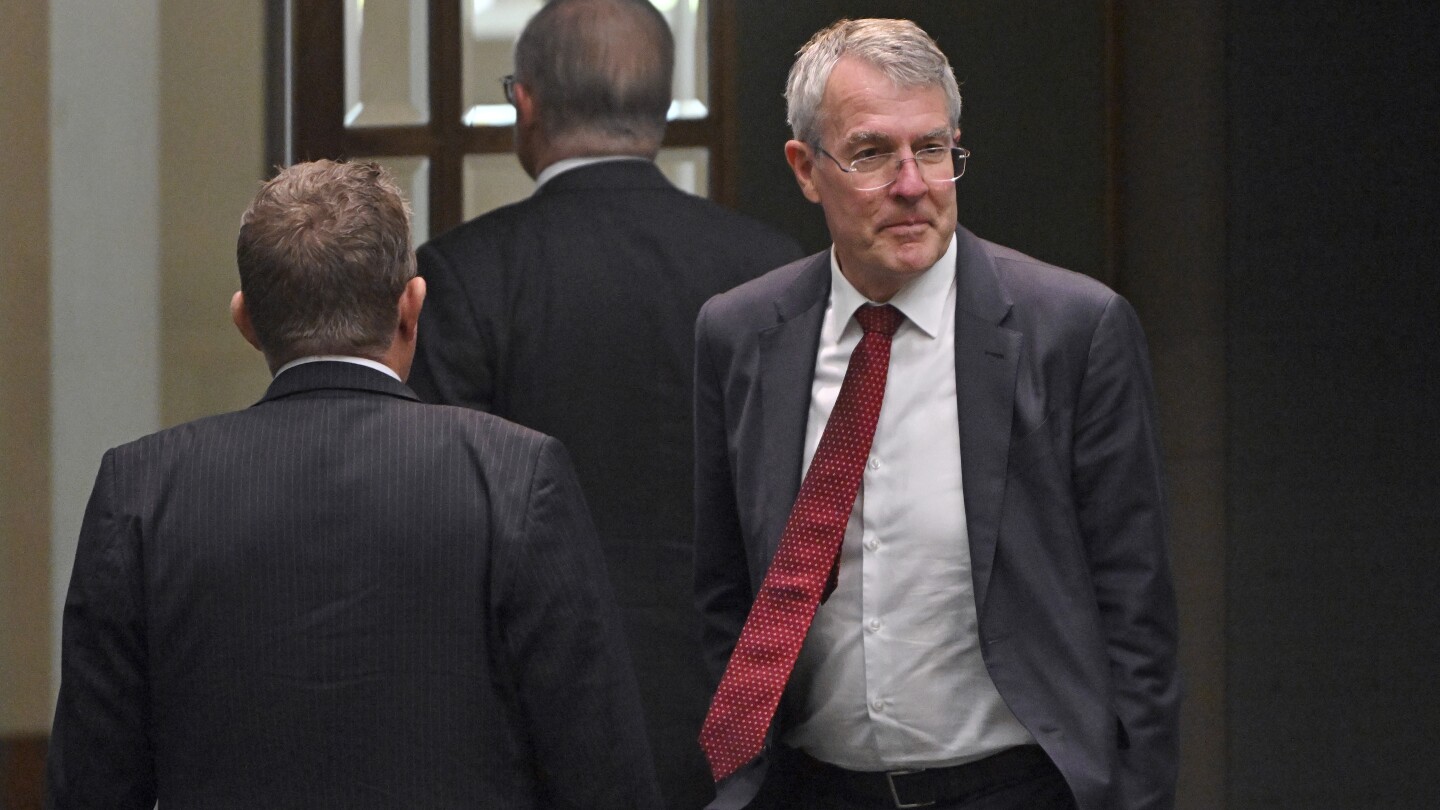MELBOURNE, Australia (AP) — The Australian government said on Tuesday it will outlaw doxxing — the malicious release online of personal or identifying information without the subject’s permission — after pro-Palestinian activists published personal details of hundreds of Jewish people in Australia.
Attorney-General Mark Dreyfus said the proposed laws, which have yet to be drafted, would involve issuing take-down notices to social media platforms and imposing fines for the intimidation tactic.
The government was responding to Nine Entertainment news reports last week that pro-Palestinian activists had published the names, images, professions and social media accounts of Jewish people working in academia and the creative industries.
Pro-Palestinian activists distributed a nearly-900 page transcript that leaked from a private WhatsApp formed last year by Jewish writers, artists, musicians and academics, Nine newspapers reported last week. The transcript was accompanied by a spreadsheet that contained the names and other personal details of almost 600 people, purportedly the group’s membership.
Author Clementine Ford, who was one of several activists who posted links to the leaked information, said that it shouldn’t be considered doxxing.
“This chat demonstrated extremely organised moves to punish Palestinian activists and their allies,” Ford posted on Instagram.
Dreyfus said the new laws would strength Australian protections against hate speech, but provided scant detail about how they would work.
“The increasing use of online platforms to harm people through practices like doxxing, the malicious release of their personal information without their permission, is a deeply disturbing development,” Dreyfus, who is Jewish, told reporters.
“The recent targeting of members of the Australian Jewish community through those practices like doxxing was shocking but, sadly, this is far from being an isolated incident,” Dreyfus added.
There has been an increase in reports of antisemitism in Australia since Israel’s war against Hamas began in October.
The Australian government’s online safety watchdog defines doxxing, which is also known as “dropping dox” or documents, as the “intentional online exposure of an individual’s identity, private information or personal details without their consent.”
Asked for his definition, Dreyfus said doxing was the “malicious release, publicly, of personal information of people without their consent.”
“We live in a vibrant multicultural community which we should strive to protect,” Dreyfus said.
The government’s plan to outlaw doxxing was welcomed by the Executive Council of Australian Jewry, which represents Australia’s Jewish community.
“We look forward to working with the government to ensure the full extent of the harm caused is understood and that the new laws effectively protect Australians from this shameful and dangerous practice,” council president Daniel Aghion said.
Monash University cybersecurity expert Nigel Phair applauded the idea of a law against doxxing, but questioned how it could be enforced.
“It’s really difficult for policing agencies to police such laws when, really, they just don’t get the access to the data. Really, it’s the social media companies who bear the responsibility,” Phair told the Australian Broadcasting Corp.
“Our law enforcement agencies, dare I say, are already swamped with online investigations with the amount of crime that we have online. Adding this to it without any additional resources and the really integrated work with the social media platforms — it just won’t do much,” Phair added.

